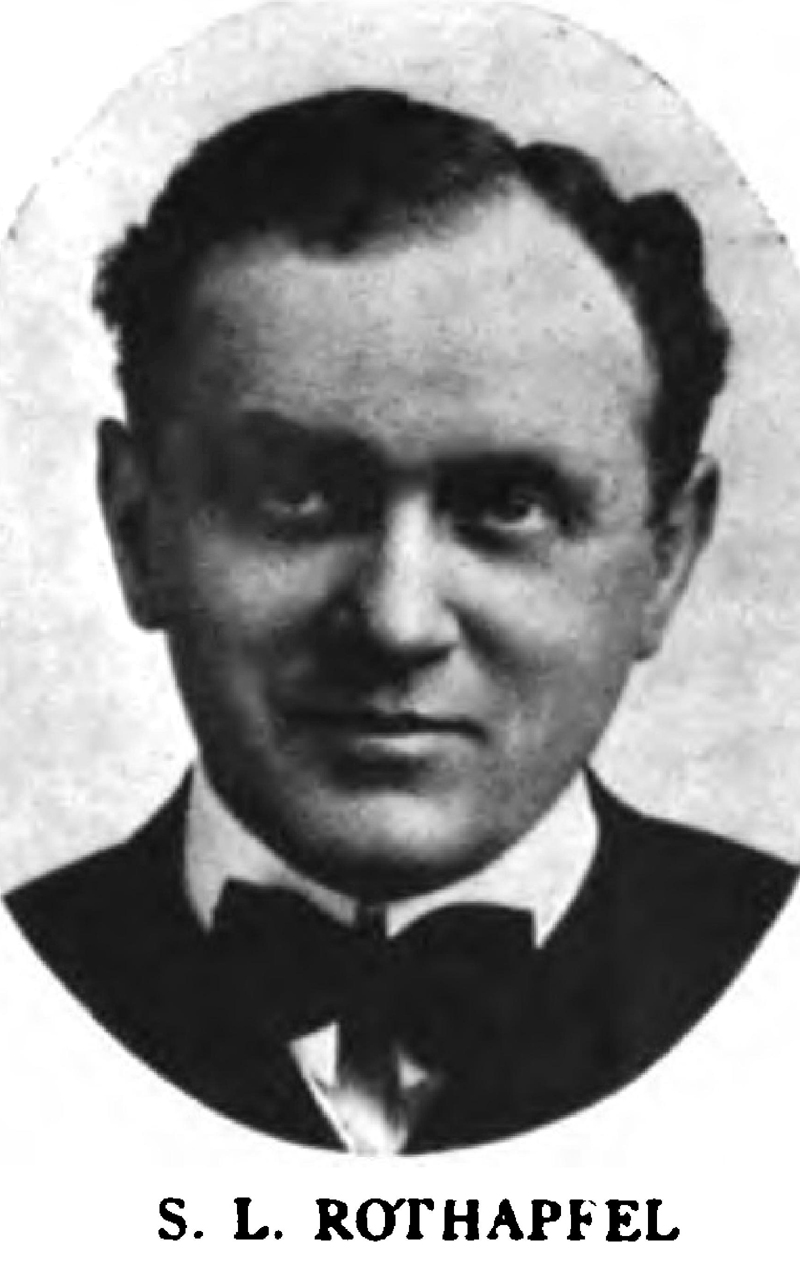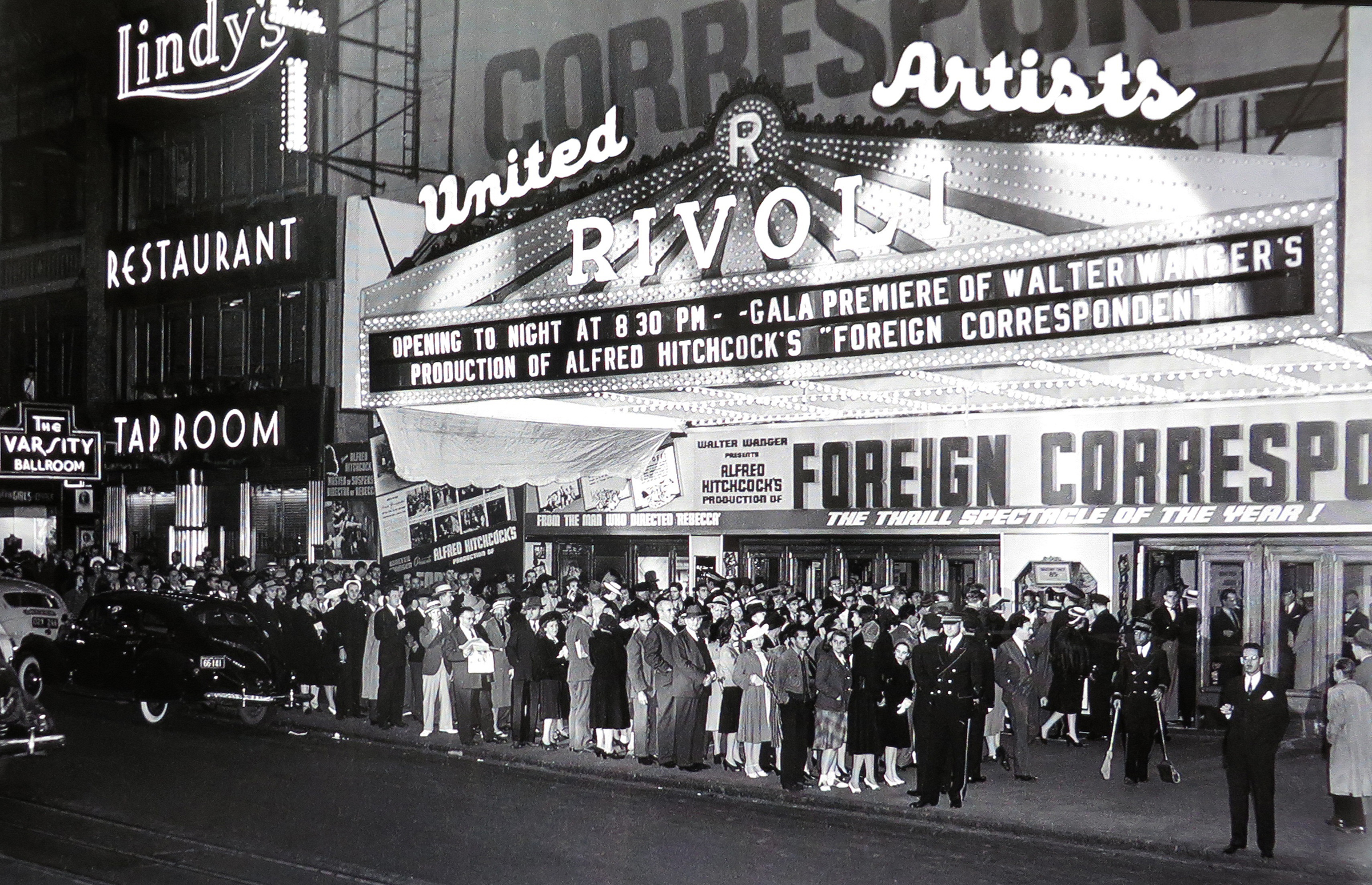|
|
William S. Hart
|
Rivoli Theatre program for the Broadway premiere of "Breed of Men," February 2, 1919. An Artcraft picture, "Breed of Men" was produced by its star, William S. Hart, and distributed by Thomas H. Ince of Famous Players-Lasky Corp. (later known as Paramount). It was directed by Lambert Hillyer from an original story and screenplay by J.G. Hawks. It is reported that a print of the film exists in the Museum of Modern Art Film Archive in New York City. Set and filmed in Chicago, Hart's character is made sheriff under false pretenses and is thought by his love interest (played by Seena Owen) to be in cahoots with the bad guy (played by Bert Sprotte) until Hart's character proves otherwise. Also features Buster Irving as the girl's brother. The Rivoli Theatre performance includes, in addition to orchestral and organ numbers and singing, a "lifestyle" short ("Modern Girls," with the latest in women's fashions), a Vitagraph comedy and a newsreel President Woodrow Wilson's review of U.S. troops in France. About the Rivoli and Rivoli Theatres.
The Rialto and Rivoli theaters were sister movie palaces on Broadway that used a full orchestra and grand pipe organ to provide audiences with a complete program including a first-run feature film (often a premiere) plus comedic shorts and newsreels interspersed with musical performances. A new program, initially built around the latest Famous-Players Lasky (Paramount) release, debuted every Sunday. The 1,960-seat Rialto opened April 21, 1916, on the site of Oscar Hammerstein's former Victora Theater, a vaudeville venue, at 1481 Broadway (corner 42nd Street). With its success, on December 28, 1917, owners Crawford Livingston and Felix Kahn opened a second theater, the 2,270-seat Rivoli, a Greek revival building designed by Thomas W. Lamb at 1620 Broadway (corner 49th). Its first show featured the Douglas Fairbanks film, "A Modern Musketeer."
Music was considered central to the program. The Rialto initially used a grand pipe organ built in 1916 by the Austin Organ Co. of Hartford, Conn., Opus 611, which was billed as the largest organ ever installed in a motion picture theater. It was replaced with a 1922 Wurlitzer Opus 520. The Rivoli started with a 1917 Ausin, Opus 709, and replaced it with a 1924 Wurlitzer, Opus 839. In 1926, Paramount built its own eponymous theater on Broadway, and it also controlled the Criterion. There wasn't enough Paramount product to sustain four theaters, so the Rialto and Rivoli started to run films from other distributors. The Great Depression killed the Criterion and the Rialto; the latter closed in 1935 and was rebuilt on a smaller scale. In the 1970s it became an adult movie theater, then switched to live theater in the 1980s and was used as a TV studio before being demolished in 2002 to make way for a high-rise office building.
In 1963, an Egyptian façade was added to the building for the premiere of "Cleopatra." The façade stayed until the 1980s when it was altered to prevent the building from being designated a landmark. In 1981 the curved screen was removed, and in 1984 it became a United Artists Twin theater. UA closed it in June 1987 and the building was demolished in favor of a black glass skyscraper.
19200 dpi jpegs from original program purchased 2014 by Leon Worden. |
WATCH FULL MOVIES
Biography
(Mitchell 1955)
Narrated Biopic 1960
Biography (Conlon/ McCallum 1960)
Biography (Child, NHMLA 1987)
Essay: The Good Bad Man (Griffith & Mayer 1957)
Film Bio, Russia 1926
The Disciple 1915/1923
The Captive God 1916 x2
The Aryan 1916 x2
The Primal Lure 1916
The Apostle of Vengeance (Mult.)
Return of Draw Egan 1916 x2
Truthful Tulliver 1917
The Gun Fighter 1917 (mult.)
Wolf Lowry 1917
The Narrow Trail 1917 (mult.)
Wolves of the Rail 1918
Riddle Gawne 1918 (mult.)
"A Bullet for Berlin" 1918 (4th Series)
The Border Wireless 1918 (Mult.)
Branding Broadway 1918 x2
Breed of Men 2-2-1919 Rivoli Premiere
The Poppy Girl's Husband 3-23-1919 Rivoli Premiere
The Money Corral 4-20-1919 Rialto Premiere
Square Deal Sanderson 1919
Wagon Tracks 1919 x3
Sand 1920 Lantern Slide Image
The Toll Gate 1920 (Mult.)
The Cradle of Courage 1920
The Testing Block 1920:
Slides, Lobby Cards, Photos (Mult.)
O'Malley/Mounted 1921 (Mult.)
The Whistle 1921 (Mult.)
White Oak 1921 (Mult.)
Travelin' On 1921/22 (Mult.)
Three Word Brand 1921
Wild Bill Hickok 1923 x2
Singer Jim McKee 1924 (Mult.)
"Tumbleweeds" 1925/1939
Hart Speaks: Fox Newsreel Outtakes 1930
|
The site owner makes no assertions as to ownership of any original copyrights to digitized images. However, these images are intended for Personal or Research use only. Any other kind of use, including but not limited to commercial or scholarly publication in any medium or format, public exhibition, or use online or in a web site, may be subject to additional restrictions including but not limited to the copyrights held by parties other than the site owner. USERS ARE SOLELY RESPONSIBLE for determining the existence of such rights and for obtaining any permissions and/or paying associated fees necessary for the proposed use.







































